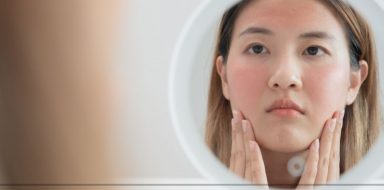Stimulants for ADHD
There are many treatment options available for ADHD patients, and one of those options is stimulant medication. In this article you will learn about stimulants for ADHD, how they work, what the side effects are, and when it is not recommended.
When it comes to treating ADHD, the most effective treatment method is ADHD medication combined with therapy.
Studies done on ADHD medication show that medication by itself reduces ADHD symptoms in 70% of adults and children who take them.
How ADHD Stimulants Work
Research into drugs to treat ADHD-like symptoms began in the late 1950s, before ADHD was called what it is today. People with ADHD have a deficiency of two chemicals in their brains: dopamine and epinephrine. ADHD medication attempts to boost the activity of these two chemicals in the body.
Dopamine is a neurotransmitter, or brain chemical, which is made in the brain. It is used by your brain when you are doing activities that involve attention, motivation, pleasure, and movement.
Norepinephrine is also a neurotransmitter, or brain chemical. It sends messages within the brain during activities, which involve mental focusing, paying attention, storing memories, and helping people wake up.
Increasing both of these chemicals in the body helps to minimize ADHD symptoms and create normal dopamine and epinephrine levels.
Types of ADHD Medication
There are two main types of ADHD stimulant medication: amphetamines and methylphenidate.
Amphetamines increase levels of dopamine and norepinephrine in the brain. Examples of amphetamines are Adderall, Vyvanse, and Dexedrine. Amphetamines produce fewer side effects than methylphenidate and are prescribed to adults.
Methylphenidate is the first choice for children due to its long history. Examples of methylphenidate are Biphentin, Ritalin, and Concerta. It is somewhat milder in strength than amphetamines.
Long-Acting, Intermediary, and Short-Acting Stimulants
There are three dosage types: long-acting, intermediary, and short-acting. The long-acting are those that can last 10 to 14 hours and the short-acting last one to five hours. The intermediary type is medium-acting and can last 5 to 10 hours. With your doctor’s guidance you can decide what the best dosage type is for you.
Finding the Correct Medication
Because ADHD treatment requires some experimentation, it may take some time to find the medication type and dosage amount that works best for you.
ADHD symptoms vary among individuals and a one-size-fits-all approach is not possible. Take note: you should never change the dosage or stop your medication without first speaking to your doctor, to avoid adverse effects.
Treatment Monitoring
Your doctor will actively monitor your treatment once you start your medication. Regular check-in appointments are part of the monitoring process. This is a good time for you to tell your doctor about any changes or concerns related to the medication.
ADHD in men is often diagnosed quicker because they show symptoms differently compared to women. From symptoms to treatment, here's what to know.
Children and ADHD Medication
Speak to your doctor about any ADHD-related questions, concerns, and potential alternatives. Your doctor has information on the available medications. You should also do your own research on the recommended medication. Researching alternatives may also be a good idea, to be aware of the available options.
If your child has issues swallowing pills, you can get ADHD medication in patch form. You may also need extra medication to assist your child with after-school activities.
The effects of ADHD medication on a growing child and their brain have not been determined. According to research, the effects of ADHD medication on a developing brain are unknown.
Consider encouraging your child to do physical activity. Exercise, such as walking, hiking, dancing, and sports, has shown an increase in dopamine levels. Tai Chi has also shown improvement in ADHD symptoms. You can join your child in these activities for all the benefits they offer, as well as the memories.
Potential Side Effects
As with most medications, there are side effects. The general side effects of ADHD medication are:
- Loss of appetite
- Headaches
- Difficulty sleeping
- Upset stomach
- Feeling restless
- Mood swings
- Dizziness
- Racing heartbeat
- Tics
- Depression
There may be other important, red-flag side effects where you will need to contact your doctor as soon as possible:
- Chest pain
- Shortness of breath
- Fainting
- Seeing or hearing things that are not real
- Suspicion or paranoia
ADHD Medication is not Recommended for Everyone
In the presence of certain conditions, ADHD medication is not recommended and you should tell you doctor if any of these apply to you:
- High blood pressure
- Hyperthyroidism
- Heart defect or other related heart conditions
- Vascular issues
- Glaucoma
- High levels of anxiety
- Drug or alcohol abuse history
Choosing an ADHD medication is a personal choice for you or your child. One of the most important things you can do is to talk to your health practitioners.
Consider keeping a notebook for gathering important and useful information, even questions you may have along the way. Speak to other parents and other people in a similar situation.
You can join ADHD groups and organizations for more support (there are virtual groups). The resources section of this article may also provide you with new information.
In addition to therapy and ADHD medication, exercise is one of the few natural ways to treat ADHD. Studies have shown that exercise increases dopamine in your body, reducing ADHD symptoms. So go get yourself some dopamine by doing exercises you enjoy.







